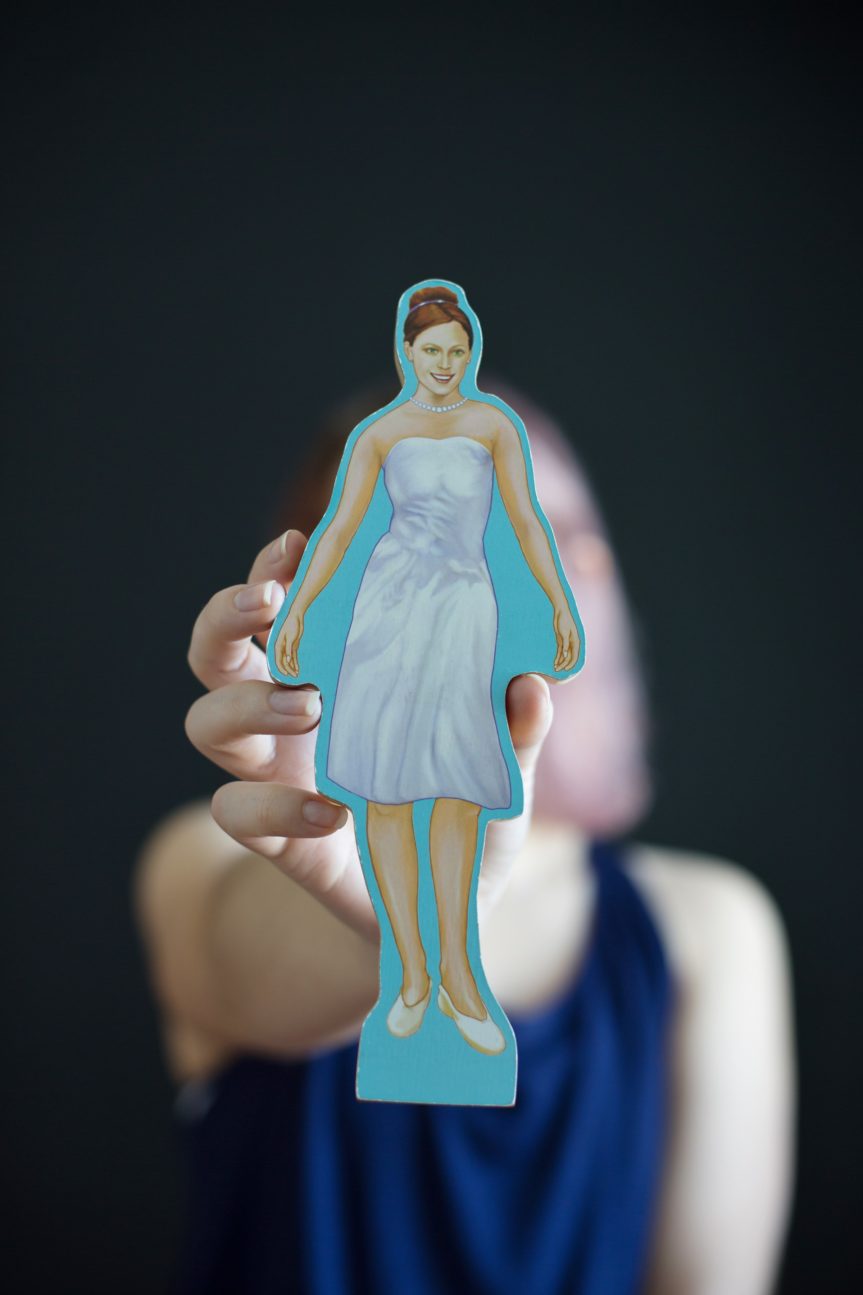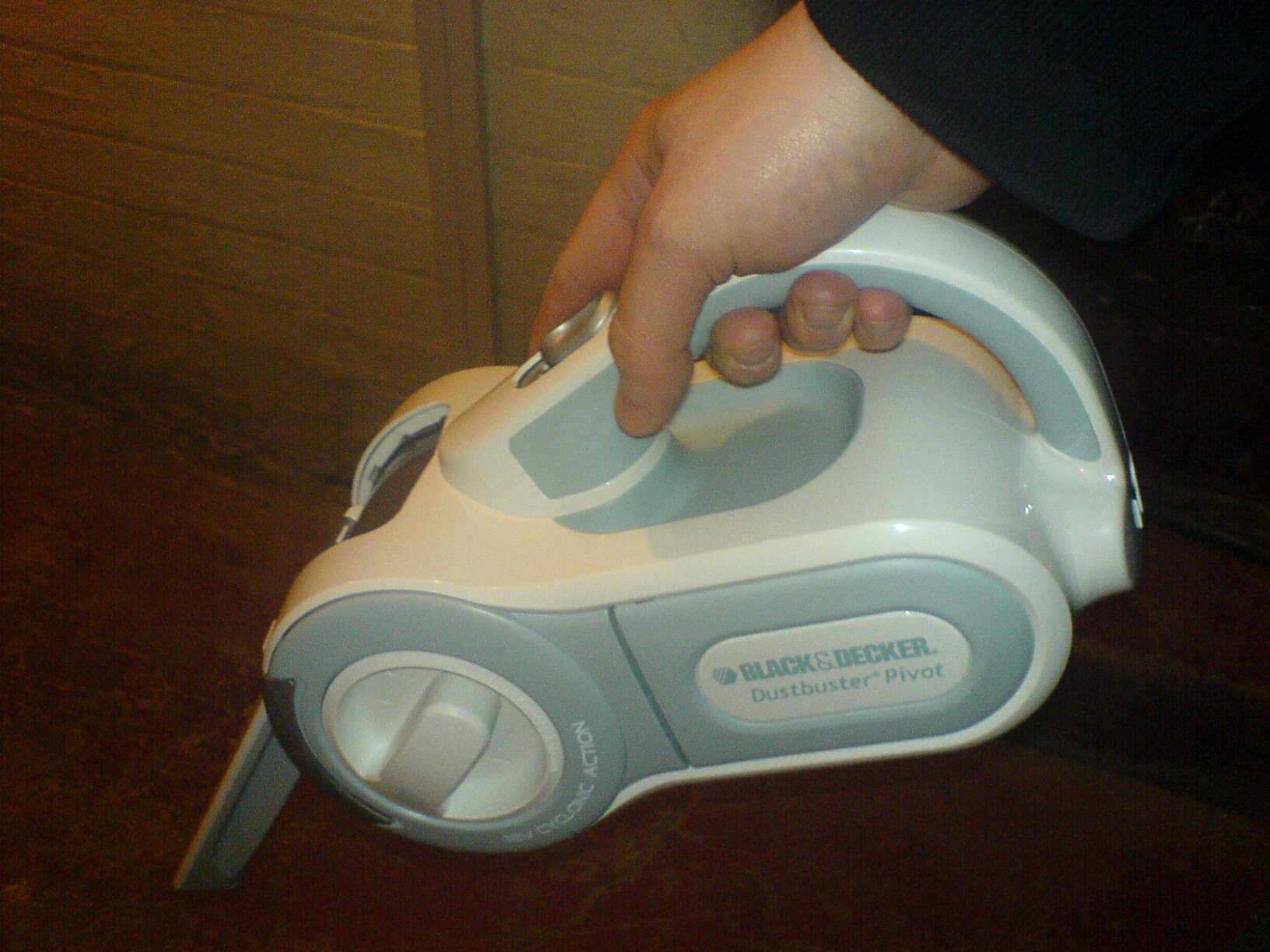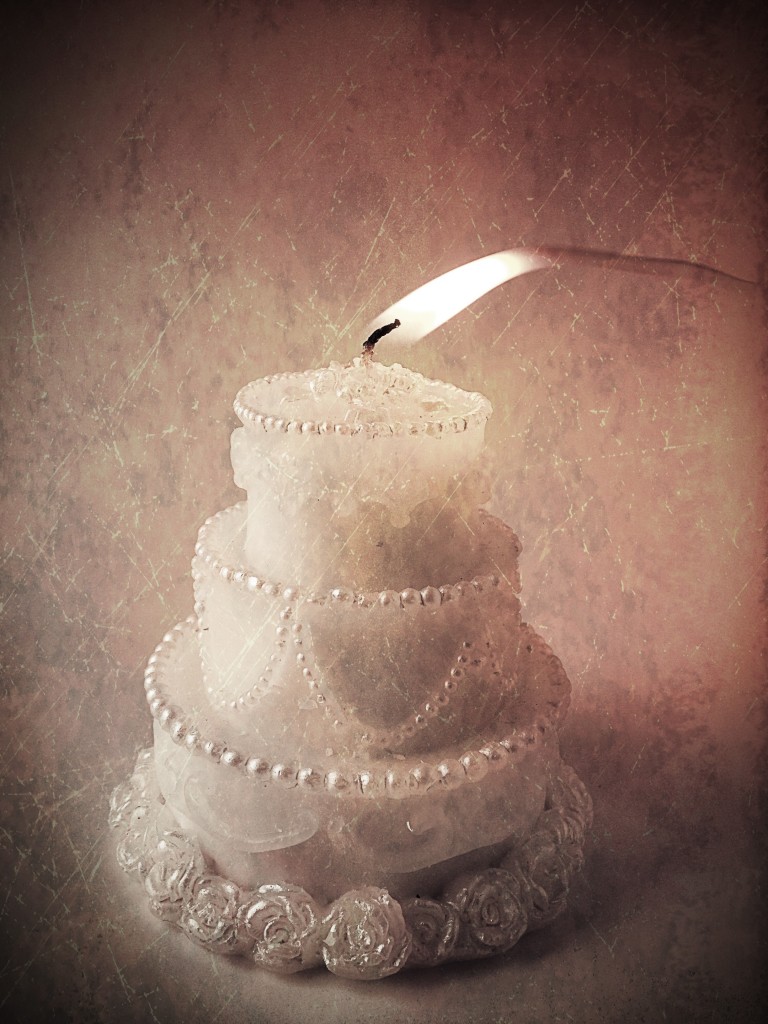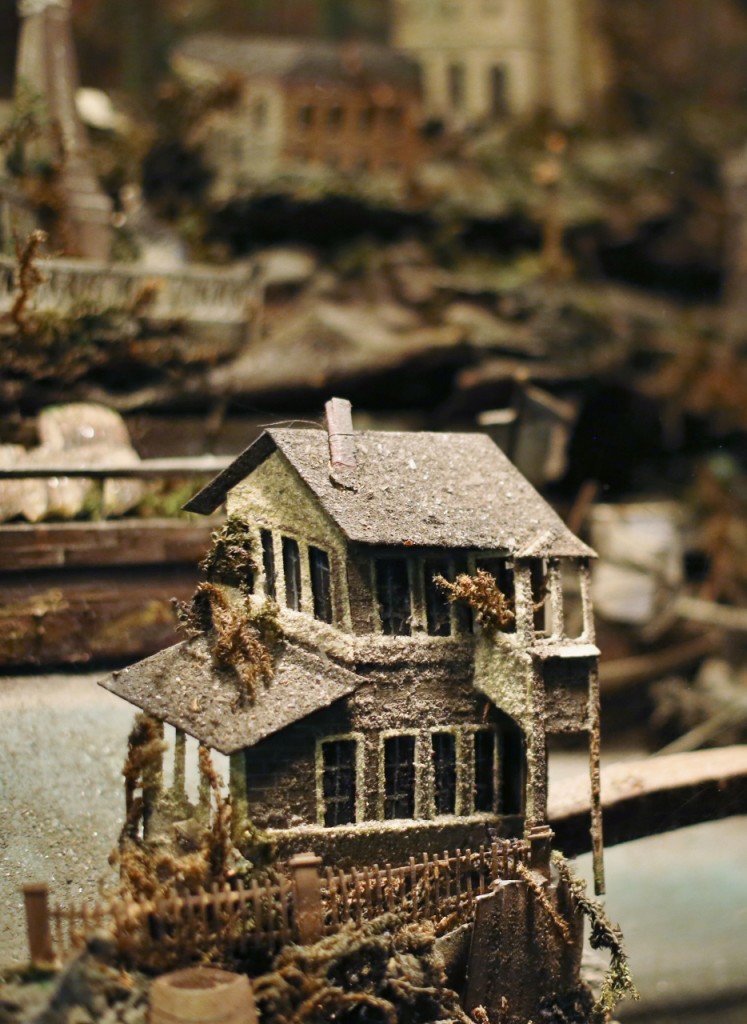Photo by Gina Easley
By Dana Salvador
As I slipped away from the city lights on the four-lane highway, the land opened up like a collapsible box. The sides, filled with trees and undulating rises, slowly flattened to make room for the prairie, the sky as wide as intention. In my beat-up Riviera, I drove towards our abandoned farmhouse, suffering from nostomania, an irresistible compulsion to return home.
The ache for my family and our farm—torn apart by my father—radiated through my body. After twenty-eight years of marriage, my father walked through our farmhouse, took his clothes from the closet, and left—an action so out of character that over twenty years later I still struggle to reconcile the man I thought he was with this moment. I’ve no idea how long my father cheated on my mother before he moved in with his mistress, four miles away. The veil of secrecy my parents created about their marriage, and the deceit my father displayed leaves the events of my memory out of focus, a grainy film that never uses the correct camera angle.
After my father left, and my mother was uprooted, I walked through campus as if a piece of bailing wire were tied to my breastbone. Suddenly something pulled the wire taut, and I’d drive away from Greeley, Colorado—the ugly stepchild of the Front Range where I attended college—to the prairie. I could be eating a bagel for dinner, studying at a coffee shop, or talking to a friend on the phone and a moment later find myself in my car headed east to an empty house.
On this particular night in the fall of 1998, it was almost ten, and I had classes in the morning. I knew it was dangerous for a woman to drive alone down deserted roads—a flat tire would mean I’d spend the night in my car waiting for enough daylight to change it and risk who might stop to help. I also knew if I drove fast, I could make it to the farm in two and a half hours. Usually people drive as quickly as they can through the prairie. They want to get somewhere. I drove the speed limit to take my time.
These moments are the impulse of youth, the moments I fear for my young twin sons who I hope never have to make such pilgrimages to their childhood home. Somehow, back then, part of me felt that if I returned, even for a few hours, I might make the divorce, the abandonment less real, that my presence could conjure my family’s existence. But maybe I just wanted to float out to the deepest part of my sorrow and wallow.
While I’d lived in Greeley attending college for several years, I hadn’t adjusted to the horizon obscured by houses and businesses, the streetlights and traffic, the fast talkers and strangers living on the other side of the wall of my apartment. The house became a Siren, something I couldn’t pull myself away from. I traveled the prairie like an ocean.
•••
Houses nestled next to the road became less and less frequent. Sweet grass grew in wisps like cats’ tails around the posts of barbed wire fences. Purple thistle filled pastures on either side of the road. In the moon’s white-gold glow, clumps of yucca and sagebrush gleamed like forgotten glass ornaments fallen off covered wagons years ago.
Occasionally, I passed iron gates with family brands and cattle guards marking the entrance to large ranches. The gravel driveways led to houses, outbuildings, and barns far enough off the highway to be covered in darkness. I imagined the people in these houses asleep in front of the TV or in bed, curled up like kittens beside each other, just like my own family is now if someone were to drive by our stucco house in Albuquerque.
On the interstate, a stream of headlights greeted me heading in the opposite direction, towards Denver. The farther east I drove, the more traffic thinned. I passed Ft. Morgan as steam billowed from the two concrete columns on the south side of the interstate. I breathed the decayed fumes from the beet processing plant, a smell as stale as dog breath.
After fifteen miles, I took the Yuma exit and followed the two-lane road. I thought about turning around, heading back, but there was nothing waiting for me in Greeley, either.
•••
Wide stretches of pastureland lined the highway. Every few miles, at an intersection, I saw mailboxes. Some sat on top of fence posts like ours at home. Others rested on homemade wrought-iron stands. Yard lights dotted the countryside. I saw few cars. I knew my friends from college, all city girls, would be nervous driving for miles without seeing another car. The isolation comforted me. There are times now, living in Albuquerque, when I still long for this isolation, for space around me and for the comfort of solitude.
In sixty miles, I passed through two small towns, each only a few blocks long. Clustered streetlights glowed like a lighthouse miles before I approach the town. Pickups lined the main street outside the local bar. In Yuma, at one of three stoplights, I turned north onto Highway 59.
I rolled down the window; the cold air smelled like plowed fields. Short blades of green wheat sprouted out of dark soil near the edge of the road. Once in a while, I spotted evergreen windbreaks. Some sheltered foundations of houses that fell apart years ago.
Highways in the country are narrow; few allow for a shoulder. Reflectors, paced every hundred yards or so, lead the way. I watched for deer. Almost everyone I know has hit a deer or had a close call. I’ve been taught never to swerve. It’s better to pump the brakes, take the blow—swerving might cause the car to slide into the ditch, flip. Maybe that’s what these late night drives were about: facing the hurt head on.
After twenty-five miles on asphalt, I reached Clarkville, an abandoned community.
Thistles and sunflowers grew waist high around the two remaining buildings. White paint peeled and cracked on the siding of the church and left boards exposed to the harsh sun, the cold winters. Maybe it’s all changed now. Maybe the church collapsed. Maybe the trailer’s gone.
I left the solid feel of pavement underneath the tires and turned onto gravel roads.
•••
As I drove closer to home, stories attached themselves to places void of meaning for most: the corner where my brother and sister wrecked their car, putting both of them in the hospital; the airstrip on the edge of a field where Mr. Hadler landed his spray plane in the summer; the old Holcomb place where the bus picked up children for several years and then one day the family disappeared, blown like chaff to far away places. Their house, like so many houses in this area, still stands empty.
Even though it was one in the morning, I worried about seeing another vehicle on the narrow gravel road. I might meet someone checking cows or getting home late from the bars. Great-uncles and aunts, countless cousins and neighbors will recognize my car. They’ll tell my dad or my grandparents they saw me. I didn’t want anyone to know. I didn’t want my grandparents, who live just four miles away from our house, to worry about me driving so far alone at night. I didn’t want my dad to call me. If they found out, I’d lie. I’d tell them I forgot something I needed, which wouldn’t be as much of a lie as intended.
Eventually, I saw three silver bins like metal cairns on the left hand side of the road. I’d reached our field.
•••
Rounding the corner, my chest swelled. I knew every inch of this mile. I ran on this road when I was in high school and the past two summers when I returned from college. I jogged in the morning before I started chores. As the sun came up, wild sunflowers in the ditch raised their heads towards the light. Rabbits and field mice scampered across the road. Cows bawled as I passed by, and the gravel crunched beneath my weight, my breath labored but even.
Sometimes, I ran at night. I could only see a few feet in front of me. The maintainer’s blade left a strip of dirt on either side of the road. I used it to navigate the road’s edge. Every noise—crickets chirping, wind blowing through milkweeds, coyotes’ calls—magnified itself in the darkened silence. From the ditch, the glow of stray cats’ eyes followed me; at least that’s what I told myself. It could have been skunks or coyotes or raccoons. At night, I only went to the nearest corner, a quarter mile away, and back several times. Fear held me back from pressing further into the darkness.
To most people, there’s hardly a dip in the road. But I knew every washboard, every soft shoulder, every drainage route. I’m home.
The elm trees my great-grandmother planted stood like guards beside the road. I entered the driveway and toke note of the wild mustard, at least a foot tall, growing up through the lava rocks in front of the house. There must have been a storm because part of the gutter over the garage hung off the roof. Small branches had fallen onto the overgrown lawn. The elm tree my parents planted on the south side of the house had doubled in size. As I followed the driveway around back, I noticed the suckers growing at its base.
The headlights glared on the large deck my father and brother built. My mom talked about buying whiskey barrels and loading them with flowers to put on the deck. She never did. She’d say, “We should put lights along the sidewalk” or “We should plant new trees.” Action was never her strong suit. She also didn’t realize everything would fall apart so quickly.
I got out and heard the echo of the car door shutting. From the glow of the yard light, I noticed dandelions and sandburs growing through the cracks in the sidewalk. Buffalo grass encroached the gravel driveway. The deck needed another stain. I paid attention to these things because they were my jobs—weeding, mowing, staining.
Cows gathered in the corral. A few bawled. When I look up into the sky, the Milky Way and a thousand other stars seemed strewn across the sky like seeds thrown by a pioneer from a grain bag slung over his shoulder.
I unlocked the door with one of two house keys we ever had made. I’m not sure how I ended up with one. I walked through the garage, up the wooden steps to the side door.
•••
During the divorce settlement, my mother had a choice: keep the house or sell it to my father. With all the siblings’ consent, my brother said, “Sell it.”
We assumed my father wouldn’t let go of the house—there’s little market for farmhouses. He didn’t need the house. The day he left my mother, he moved in with his girlfriend, Susie. I knew nothing of their relationship. She’s a ghost who has stolen my father and haunts the rest of us.
Three months after my father left, my sisters and I helped my mom move to Greeley, into an apartment. We took essentials—her bed, sheets, a few pots and pans, her clothes, the kitchen table and chairs, a love seat and recliner. My mother wandered around the house, unsure what to take, unsure what to leave. She’d point to the TV cabinet or the floral living room sofa, and ask, “Do you think this can fit?” We’d shake our heads, compromise on something smaller. By afternoon, we loaded all we thought could fit into the small two-bedroom apartment my mother and I’d share for two years.
The apartment never felt like home. In fact, even with a husband and children of my own, nowhere has ever felt so truly like my home except the farm. But the apartment my mother and I shared felt like a stopping point on the way to somewhere else—somewhere better. Living together while we both went to college reversed our roles. She relied on me to help her adjust to college and living in town. From day to day, I didn’t know what to expect. Some days we’d talk and laugh about classes like roommates. Other days, I’d find her sobbing at the kitchen table. I’d talk her through getting flipped off in traffic or prioritizing the myriad projects due for her classes. Most of the time, she couldn’t be a mother. I didn’t expect her to.
•••
When I visited the house, I wanted my mother to be at the table sipping a cup of tea, reading a book, waiting. I wanted my father to be asleep in his chair like so many other nights. Always, I imagined the idealized version of my parents, the version I’d actually had for many, many years, rather than the desperate pair I last witnessed: the woman who locked herself away from us; the man stumbling home, drunk.
I opened the door to darkness. Staleness filled the air like in an empty grain bin. I turned on the hallway light and wandered from room to room like a sleepwalker. I don’t know what I was looking for—I don’t know what I expected to find.
From the garage door, I walked into the kitchen. A towel hung in the refrigerator door. A teacup and plate rested in the dish rack. A 1996 calendar on the wall showed the month of March, the month my father left.
•••
I could’ve grabbed the cookie sheet or the over-sized pan my mom talked about missing. I could’ve taken the flower-print sheets for her bed from the hallway closet filled with towels, sheets, and linens. But I didn’t. I wanted it to stay the same like a shrine or museum. If I took something back, my mother would know I visited the house. She thought I was out with friends having fun.
We had an understanding—I can come back to the apartment whenever I want without question, as long as no boys stay the night. I didn’t want to see the men my mother might have stay the night at the kitchen table in the morning, either. Yet, I shouldn’t have worried. My mother has never been on a date. I’m sure she worried about me, but it would’ve compounded her worry to know I made trips to the house.
As I wandered into the combined living room and dining room, the absence of the table, chairs, and recliner reminded me everything had changed. Shannon’s basketball and track pictures stood on top of the TV cabinet, though the TV is missing. I walked into the hallway to my parents’ room.
I saw the imprints in the carpet where their bed had sat. I looked at the long, oak dresser with a mirror attached. On top, my mother always placed a crocheted runner, her Chanel perfume, our school pictures, and a framed wedding picture to one side. As things deteriorated in the marriage, she took everything down but the framed 8 x 10 wedding picture in the center of the dresser.
My parents stand at the altar facing empty pews of the congregation. They are young; my mother holds a bouquet in manicured hands; my father looks stiff in his white jacket and black dress pants, a crew cut. It’s the only picture my mother ever displayed of their wedding. They had an album, but my mother rarely let us look at it. She didn’t want us to put fingerprints on the pictures. She wanted it to be perfect. Though so many times, even before my father’s affair, her distance and moods created strange obstacles we carefully navigated like cows walking on ice.
I don’t know why she left the wedding picture on the dresser. I like to think she wanted my father to see it, that she wanted to show she’d always been committed, that she’d done her best.
I didn’t stay long in my parents’ room; I couldn’t make myself. I turned off the hallway light and headed downstairs.
I entered my room at the foot of the stairs. I scanned a few framed photos of high school friends on the wall and wandered over to my bureau. I opened the top drawer and shuffled through papers: canceled checks, notes from an old boyfriend, and birthday cards from my grandparents.
On top of my bureau sat a jewelry box with a small drawer for earrings or bracelets. Because I only have a couple pairs of earrings, I put cash inside. When I opened the drawer, a wad of bills spilled out. I counted thirty-seven dollars. I shoved them back into the drawer. I must’ve been saving for something. I don’t remember what.
I scanned my closet filled with old clothes. I hadn’t had time to pack them for Goodwill the day we moved my mom. After a while, I switched off my light.
I knew it was late. It must have been close to two in the morning. I should go back. But I didn’t want to leave. Even though it was abandoned, even though only memories lived there, even though I couldn’t actually stay, I longed for the place even more.
•••
Upstairs in the kitchen, I pulled out drawers filled with silverware, dishtowels, and recipe books. I rummaged through the junk drawer filled with duct tape, Christmas bows, and birthday candles. I opened each cupboard. I looked at the canned soup and vegetables, Tupperware, plates and glasses. I stopped in the hallway just before the garage door and looked at the bulletin board on the wall.
An old school menu and a few jokes clipped out of the newspaper were tacked to the board. Our kindergarten pictures lined the bottom of the bulletin board. But at the top was a family picture, one of only two we ever had professionally taken.
I’m about two. I sit on a stool beside my father’s chair. My father is in the middle of the photo holding Shannon on his lap. Lisa props herself up on her hand on the floor by my father’s feet. My brother and mom stand behind my father on either side, their hands on his shoulders. We wear our best seventies outfits in the color of tangerines and avocados.
While Shannon and I have blank expressions because we’re too young to know what’s going on, the other four seem happy. Darren smiles as though he’s heard a joke. Lisa’s heard the same joke but won’t allow her teeth to show in her smile. My parents look bright, content. They seem to have no inkling of what’s to come—the joys, the heartaches, and everything in between.
I locked the door behind me.
•••
In August 2000, my sister and I were back in mom’s apartment in Greeley for the summer when my father called. He decided to rent the house to a couple with twins. The young man had moved back home to work on his family’s farm, like my father had, over thirty years before.
I hadn’t visited the house for almost two years. To accommodate the renters, we drove from Greeley to the farm three times in one week. Darren had to work; Lisa lived out of state. On the first trip, we wandered around for hours putting a few items in boxes, but mostly we were mesmerized. One of us would find an object—the cast from when I broke my wrist in fourth grade, my mother’s wedding china, the dress Shannon wore for prom—and we told stories.
The next time we made a plan to work room by room. It helped us focus. The third trip, we brought a moving truck. Like a cowboy trying to zip a winter jacket with too many layers underneath, we crammed the truck full, barely leaving space to close the door. We left odds and ends inside—an old bookcase, bunk beds, a broken record player, among other items. We figured my father could move the rest.
After we loaded the truck, each of us took one last walk around the house. Near dark, Shannon said, “We should go.” My mother asked for a few more minutes. She went to the front living room, pulled back the sheer curtains and looked out across the lawn. It hadn’t been mowed. The limbs of the elm trees swayed slightly. The pasture across the road was brown from the August sun. Tumbleweeds caught in the barbed wire fence dangled and thrashed against the barbs, trying to break free.
The setting sun left brush strokes of orange and red across the horizon. My mom turned from the window and said, “I’m ready.” Before we walked out the door, I put the key on the kitchen counter.
•••
Last June, my husband Miguel and I drove by the house with our boys. We were traveling through on our way to work a summer teaching job in Nebraska. I hadn’t been back inside the house since that August, almost fifteen years before. I asked Miguel to slow down as we approached. Wild irises bloomed at the lawn’s edge. A large flowerpot filled with petunias sat on the cement steps leading to the front door. Fewer trees stood in the backyard, and a plastic infant swing swayed in the breeze on an elm bordering the road.
Because Miguel drove slowly, the boys thought we were stopping and said, “We get out Papí? Get out?”
“You have to ask your Mama.”
“Get out Mama? Get out?”
I leaned over to look at them in their car seats, their hazel eyes wide with anticipation then turned back to the house. I scanned the yard, the line of trees, and the outbuildings. I examined the front window and envisioned the formal living room the way we left it so many years ago: the piano against the south wall, the couch tucked between two lamp tables facing the large windows, the swivel chair to the side; a place just big enough for everyone to return.
I thought of all the secretive trips—how I couldn’t stay away. I want to talk to that girl standing in the kitchen. I want to tell her she needs to stop holding on to everything with clenched fists; she needs to let go. But I’m sure if the younger version of myself and I could be in the same room together, she might say the same thing back to me.
What would that girl think if she knew years later she’d still be troubled, that she’d be married but have paranoid moments when she thought her husband would leave, that no other place had yet felt like home? What would she think if she knew she’d so internalized the shape and feel of the land that memories would never satisfy her?
I knew if I asked, the family who lives there now would open their door, would let us wander through each room. But it would be their furniture, their pictures on the wall, their memories filling the house. I want my sons to see where I grew up, to somehow understand, but that would mean breaking the spell, the one that holds my childhood family suspended in time, just beyond the sheer curtains in the front windows.
I turned and said, “No, not yet. Not yet.”
•••
DANA SALVADOR’s work is forthcoming in South Dakota Review and has been featured in Fourth Genre, Cold Mountain Review, North Dakota Quarterly, Literary Mama, among others. Additionally, she’s the recipient of a Vogelstein Foundation Grant and the recipient of the 2016 Patricia Dobler Poetry Award. She sometimes leaves posts at www.danasalvador.wordpress.com.

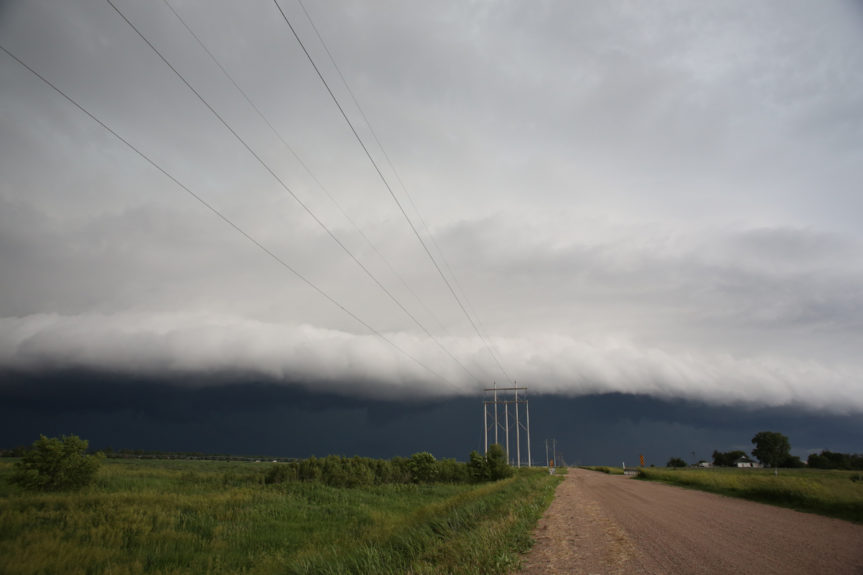
 Follow
Follow

